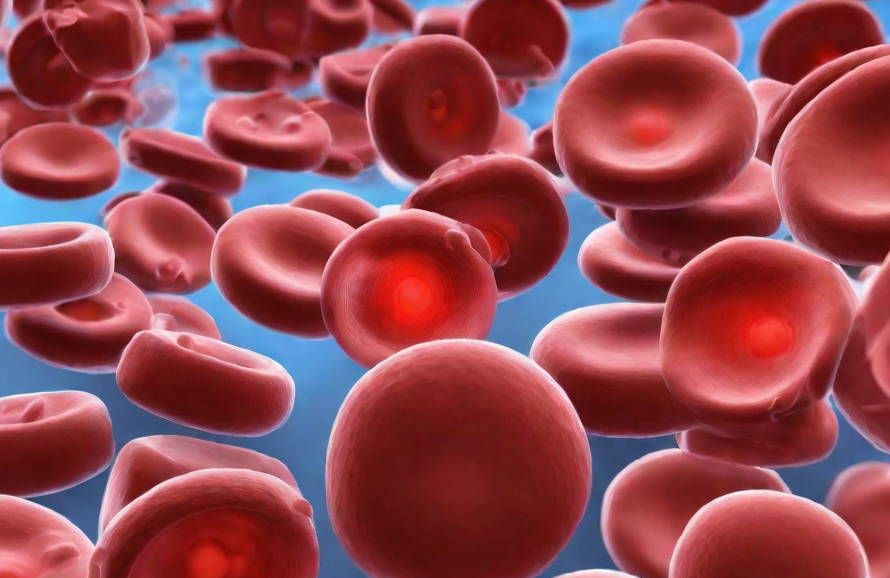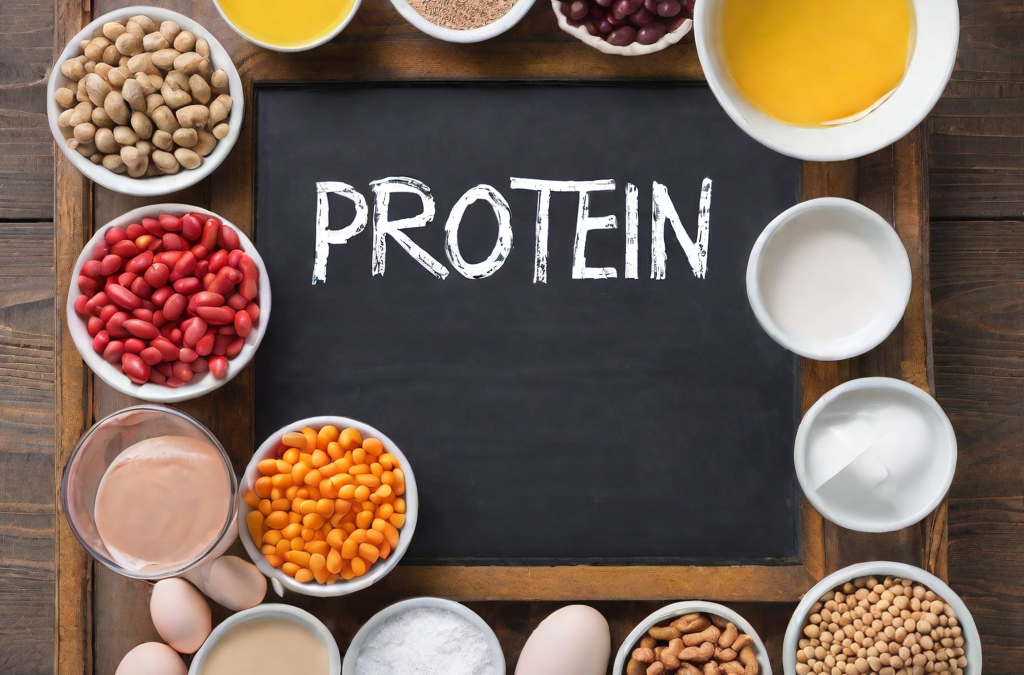The quest for longevity and healthy aging has intrigued humans for centuries. And in more recent years, the role of nutrition in longevity is a topic that has garnered significant attention.
It is widely recognized that what we eat plays a crucial role in our overall health and well-being, and emerging research suggests that our dietary choices can also impact our lifespan. Proper nutrition provides the body with essential nutrients, vitamins, and minerals necessary for optimal functioning.
By understanding how different nutrients and dietary patterns can influence longevity, we can make informed choices to support healthy aging and increase our chances of living a longer, healthier life.
Recent scientific studies have indicated that consuming moderate amounts of protein is optimal for promoting longevity.
JUMP TO…
What is protein?
The role of protein in the body
What are amino acids?
What happens when you are protein deficient?
What happens when you eat protein in excess?
The Protein Paradox
The Optimal Protein Intake for Longevity
Practical Tips for Achieving Moderate Protein Intake
Protein food ideas
Other nutrients that may help promote longevity
6 minute read
What is protein?
Proteins are macronutrients composed of amino acids, which are organic compounds containing carbon, hydrogen, oxygen, nitrogen, and sometimes sulfur. Proteins play an essential role in the body, serving a multitude of functions.
The role of protein in the body:
Tissue Building and Repair
Protein is crucial for the growth, maintenance, and repair of tissues. It provides the building blocks needed for the synthesis of new cells, enzymes, hormones, and antibodies. During periods of growth, such as childhood or pregnancy, protein needs are particularly important.
Enzymes and Chemical Reactions
Many enzymes, which act as catalysts for biochemical reactions, are proteins. Enzymes facilitate various processes in the body, such as digestion, metabolism, and the production of energy.
Hormone Regulation
Certain proteins act as hormones, which are chemical messengers that regulate various bodily functions. For example, insulin is a protein hormone that helps regulate blood sugar levels.
Transport and Storage

Proteins play a role in transporting molecules throughout the body. Hemoglobin, a protein found in red blood cells, transports oxygen from the lungs to tissues. Additionally, proteins are involved in the storage and transport of nutrients, such as iron, calcium, and vitamins.
Immune Function
Antibodies, which are specialized proteins, help defend the body against foreign substances, such as bacteria and viruses. They recognize and neutralize these invaders, contributing to immune function.
What are amino acids?
Amino acids are the building blocks of proteins. There are 20 different amino acids, and they can be categorized into essential and non-essential amino acids.
Essential Amino Acids
These amino acids cannot be produced by the body and must be obtained through the diet. They include histidine, isoleucine, leucine, lysine, methionine, phenylalanine, threonine, tryptophan, and valine. It is essential to consume foods that contain these amino acids to ensure adequate protein synthesis.
Non-essential Amino Acids
The body can synthesize these amino acids from other compounds, so they are not required in the diet. Non-essential amino acids include alanine, arginine, asparagine, aspartic acid, cysteine, glutamic acid, glutamine, glycine, proline, serine, and tyrosine.
Both essential and non-essential amino acids are necessary for the body to function optimally.
What happens when you are protein deficient?

Potential health risks associated with protein deficiencies include impaired growth and development, muscle loss and weakness, weakened immune function, nutrient deficiencies, and increased susceptibility to illnesses.
Protein deficiencies can lead to various nutrient deficiencies such as…
1. Iron Deficiency – Inadequate protein intake, especially from animal sources, can contribute to iron deficiency anemia, characterized by fatigue, weakness, and impaired cognitive function.
2. Vitamin B12 Deficiency – Vitamin B12 is primarily found in animal-based foods, including meat, fish, eggs, and dairy products. Insufficient protein intake, particularly from these sources, can lead to a deficiency in vitamin B12.
3. Zinc Deficiency – Protein-rich foods, such as meat, shellfish, and legumes, are also good sources of zinc. Inadequate protein intake may contribute to zinc deficiency, which can impair immune function, delay wound healing, and affect growth and development.
4. Calcium Deficiency – Protein-rich dairy products are often rich in calcium. Inadequate protein intake, especially when coupled with low calcium consumption, can increase the risk of developing calcium deficiency, which can lead to weakened bones and an increased risk of osteoporosis.
5. Essential Fatty Acid Deficiency – Protein-rich foods, particularly fatty fish, are also sources of omega-3 fatty acids. Inadequate protein intake, especially from these sources, may contribute to a deficiency in essential fatty acids, which can impact brain health, cardiovascular function, and inflammation regulation.
What happens when you eat protein in excess?
On the other hand, excessive protein intake can strain the kidneys, increase the risk of chronic diseases like heart disease and certain cancers, and lead to nutrient imbalances.
Health issues caused by excessive protein intake…
1. Kidney Strain – High protein intake can put strain on the kidneys, as they are responsible for filtering waste products generated during protein metabolism. This can potentially worsen existing kidney conditions or increase the risk of developing kidney problems over time.
2. Increased Risk of Chronic Diseases – Some studies suggest that excessive protein intake, particularly from animal sources, may be associated with an increased risk of certain chronic diseases, such as heart disease, certain cancers, and kidney stones. However, the evidence in this regard is not conclusive, and more research is needed.
3. Nutrient Imbalances – A diet excessively high in protein may lead to an imbalance in other essential nutrients. For instance, if protein intake is prioritized at the expense of carbohydrates and fats, the body may not receive adequate energy sources and other necessary nutrients.
The Protein Paradox
Traditionally, there has been a belief that higher protein intake is beneficial for health and longevity. This belief has roots in various cultural practices, historical experiences, and dietary recommendations.
The protein paradox refers to the observation that populations with lower protein intake often have better health outcomes and longer lifespans compared to populations with higher protein intake. This challenges the traditional belief that higher protein intake is always beneficial for health and longevity.
The protein paradox highlights the importance of considering overall dietary patterns and lifestyle factors. Populations with lower protein intake may also exhibit healthier dietary habits, such as higher intake of fruits, vegetables, and whole grains, which are associated with better health outcomes.
The Optimal Protein Intake for Longevity
In recent studies examining the impact of protein intake on metabolic health during aging, researchers have found that a moderate protein diet plays a crucial role in maintaining health as we grow older.
As we age, muscle mass begins to decline more rapidly which can contribute to slowed metabolism & hormonal dysfunction. Issues as such often lead into more health problems like nutritional deficiencies, difficulties losing weight, joint problems, low energy and more.
In one study with mice, diets containing 25-35% of calories from protein resulted in the best metabolic health outcomes, including lower blood glucose and lipids, reduced fatty liver accumulation, and healthier plasma amino acid profiles.
Another study involving humans aged 65 and above found that consuming a moderate protein intake of 0.8-1 gram per kilogram of body weight per day was associated with a lower risk of death and a decreased incidence of diseases like cardiovascular disease and cancer. T
hese findings suggest that a balanced and moderate protein intake is key to optimizing healthspan during aging.
Practical Tips for Achieving Moderate Protein Intake
- Include a variety of protein-rich foods in your diet – keep meals interesting
- Build meals around your protein source – make protein the focal point
- Include it in each meal – aim for 30-50 grams of protein per meal [dependant on your protein needs & amount of meals per day]
- Incorporate higher-protein snacks like these here to help hit protein goals
- Utilize protein powders in order to hit protein goals – this may make achieving protein goals more attainable
Protein food ideas
Lean meats – venison, lean cuts of beef, pork loin, goat
Eggs – the egg white holds the most protein [though the least amount of vitamins & minerals – this is in the yolk]
Poultry – chicken breasts, chicken thighs, turkey, cornish hen
Seafood & shellfish – shrimp, mussels, lobster, crab, scallops, oysters
Dairy – greek yogurt, cottage cheese [and other cheese], milk, whey protein powders
Nuts & seeds – almonds, walnuts, macadamias, hazelnuts, cashews, pumpkin seeds, sesame seeds, sunflower seeds
Legumes & beans – lentils, chickpeas, split peas, tofu, all beans
High-protein grains – quinoa, wild rice, amaranth, sorghum, farro, teff
Other nutrients that may help promote longevity
Omega-3 Fatty Acids:
Omega-3 fatty acids, found in fatty fish (such as salmon, mackerel, and sardines), flaxseeds, chia seeds, and walnuts, have been linked to improved heart health and a reduced risk of age-related cognitive decline. These essential fatty acids possess anti-inflammatory properties and may help protect against chronic diseases associated with aging.
Antioxidants, including vitamins C and E, beta-carotene, and selenium, help combat oxidative stress, which is believed to contribute to aging and age-related diseases. Foods rich in antioxidants include berries, citrus fruits, leafy green vegetables, nuts, and seeds.
Resveratrol:

Resveratrol is a compound found in red wine, grapes, and certain berries. It has gained attention for its potential anti-aging effects and ability to activate longevity-associated genes. However, it’s worth noting that the optimal dosage and long-term effects of resveratrol are still being studied.
Plant-Based Diets:
Plant-based diets, such as vegetarian or vegan diets, have been associated with lower risks of heart disease, certain cancers, and overall mortality. These diets tend to be rich in fiber, antioxidants, and phytochemicals, which contribute to their potential longevity-promoting effects.
It’s important to note that while these nutrients and dietary patterns have shown promise in promoting longevity, they should be considered as part of an overall balanced and varied diet.

